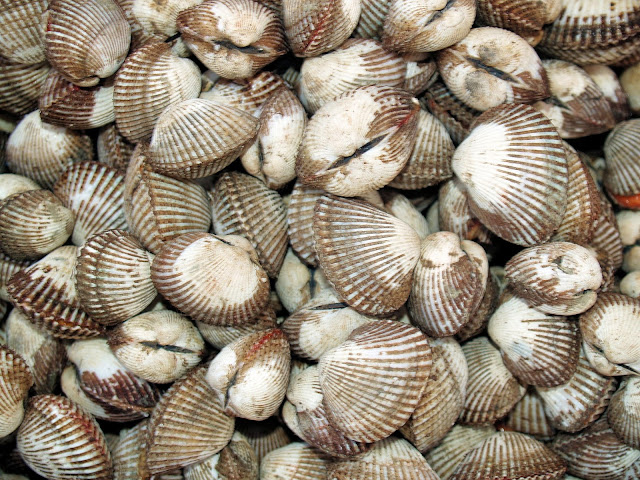 |
| Image: michaelfranks6 |
New England shellfish growers plant seeds for better lives at home and abroad
For any business to be successful, it ultimately must be cognisant of the bottom line, The Global Aquaculture Advocate says.
But profitability needn’t come at the expense of philanthropy. The two concepts are not mutually exclusive.
Two aquaculture companies, less than 100 miles apart on the East Coast of the United States, have proven that success can be measured beyond money.
In 1992, Skip Bennett planted his first oysters in Duxbury Bay and thus, Island Creek Oysters was born. During the early years, Mr Bennett sold his oysters to Massachusetts out of the back of his pick-up truck.
Today, Island Creek Oysters is at the forefront of American aquaculture as a farmer, wholesaler and distributor, operating 10 farms in Duxbury and employing a staff of 17 in its wholesale division. It has also launched high-end seafood restaurants in Boston and Portsmouth, NH.
The genesis of the company’s charitable Island Creek Oyster Foundation (ICOF) evolved from an oyster festival that began nine years ago. In that first year, funds raised from the event supported Duxbury charities.
The festival rapidly grew from a few hundred people gathering at a local pub to more than 4000 descending on Duxbury Beach. Company President Chris Sherman said Bennett wanted to leverage that growth to do something more, and farther afield.
For any business to be successful, it ultimately must be cognisant of the bottom line, The Global Aquaculture Advocate says.
But profitability needn’t come at the expense of philanthropy. The two concepts are not mutually exclusive.
Two aquaculture companies, less than 100 miles apart on the East Coast of the United States, have proven that success can be measured beyond money.
In 1992, Skip Bennett planted his first oysters in Duxbury Bay and thus, Island Creek Oysters was born. During the early years, Mr Bennett sold his oysters to Massachusetts out of the back of his pick-up truck.
Today, Island Creek Oysters is at the forefront of American aquaculture as a farmer, wholesaler and distributor, operating 10 farms in Duxbury and employing a staff of 17 in its wholesale division. It has also launched high-end seafood restaurants in Boston and Portsmouth, NH.
The genesis of the company’s charitable Island Creek Oyster Foundation (ICOF) evolved from an oyster festival that began nine years ago. In that first year, funds raised from the event supported Duxbury charities.
The festival rapidly grew from a few hundred people gathering at a local pub to more than 4000 descending on Duxbury Beach. Company President Chris Sherman said Bennett wanted to leverage that growth to do something more, and farther afield.
“That second year we started using the money we raised for international development,” Mr Sherman said.
Specifically, Island Creek Oysters partnered with Dr Hauke Kite-Powell, a research specialist at the Woods Hole Oceanographic Institution (WHOI), to launch a hatchery in Zanzibar. Rooted in the teach-a-man-to-fish philosophy, the goal of the project was to help women in the coastal community of Stone Town become self-sufficient by not only producing enough Andara, or clams, for daily nourishment, but also to support better lives for their families by providing more financial security.
“By building a hatchery, we wanted them to have a consistent source of seed so they could create enough product to bring to market,” Mr Sherman said.
Specifically, Island Creek Oysters partnered with Dr Hauke Kite-Powell, a research specialist at the Woods Hole Oceanographic Institution (WHOI), to launch a hatchery in Zanzibar. Rooted in the teach-a-man-to-fish philosophy, the goal of the project was to help women in the coastal community of Stone Town become self-sufficient by not only producing enough Andara, or clams, for daily nourishment, but also to support better lives for their families by providing more financial security.
“By building a hatchery, we wanted them to have a consistent source of seed so they could create enough product to bring to market,” Mr Sherman said.
“So actually, this would bring them an income so they’d gain further enfranchisement as well as be able to feed their families high-quality protein.”
Mr Sherman said the hatchery suffered from poor water quality, forcing them to shut the operation down, but the foundation has since helped fund a new one currently being built in the more rural village of Bububu, a suburb of Stone Town.
Read the full article HERE.
Mr Sherman said the hatchery suffered from poor water quality, forcing them to shut the operation down, but the foundation has since helped fund a new one currently being built in the more rural village of Bububu, a suburb of Stone Town.
Read the full article HERE.
The Aquaculturists
This blog is maintained by The Aquaculturists staff and is supported by the
magazine International Aquafeed which is published by Perendale Publishers Ltd
For additional daily news from aquaculture around the world: aquaculture-news

No comments:
Post a Comment